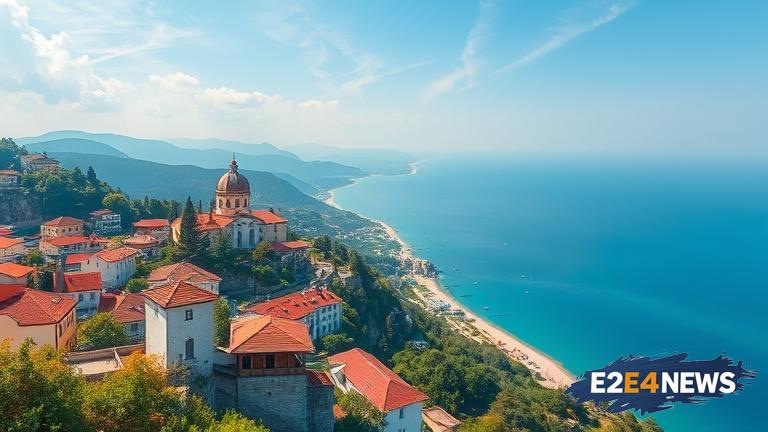Bulgaria’s tourism industry has witnessed a substantial surge in recent years, with the country’s rich cultural heritage and historical landmarks being major draws for visitors. The sector has seen a significant increase in tourist arrivals, with many travelers flocking to explore the country’s ancient ruins, museums, and historical sites. Bulgaria’s unique blend of Eastern European and Mediterranean cultures has made it an attractive destination for tourists seeking a distinctive experience. The country’s tourism board has been actively promoting its cultural and historical attractions, including the ancient city of Plovdiv, which was named the European Capital of Culture in 2019. This initiative has helped to boost tourism revenue, with many visitors drawn to the city’s well-preserved Roman amphitheater and medieval old town. In addition to its cultural attractions, Bulgaria is also home to a stunning natural landscape, with the Balkan Mountains and the Black Sea coast offering plenty of opportunities for outdoor activities such as hiking, skiing, and water sports. The country’s tourism industry has also been supported by government initiatives, including investments in infrastructure and marketing campaigns aimed at promoting Bulgaria as a tourist destination. As a result, the sector has seen significant growth, with tourist arrivals increasing by over 10% in recent years. This growth has had a positive impact on the country’s economy, with tourism revenue contributing significantly to Bulgaria’s GDP. The increase in tourism has also created new job opportunities, particularly in the hospitality and service sectors. However, the growth of the tourism industry has also raised concerns about the impact of mass tourism on the country’s environment and cultural heritage. To address these concerns, the Bulgarian government has implemented measures to promote sustainable tourism practices and protect the country’s cultural and natural resources. Despite these challenges, Bulgaria’s tourism industry is expected to continue growing, with the country’s unique cultural heritage and natural beauty making it an attractive destination for visitors from around the world. The country’s tourism board is also exploring new markets, including China and India, in an effort to diversify its tourist base and reduce dependence on traditional European markets. Overall, Bulgaria’s tourism industry is poised for continued growth, with the country’s rich cultural heritage and stunning natural landscape making it an ideal destination for travelers seeking a unique and unforgettable experience. Bulgaria’s tourism industry has a long history, dating back to the 1960s, when the country first began to develop its tourism infrastructure. Since then, the sector has experienced significant growth, with the country’s tourism revenue increasing from just a few million leva in the 1960s to over 10 billion leva today.
